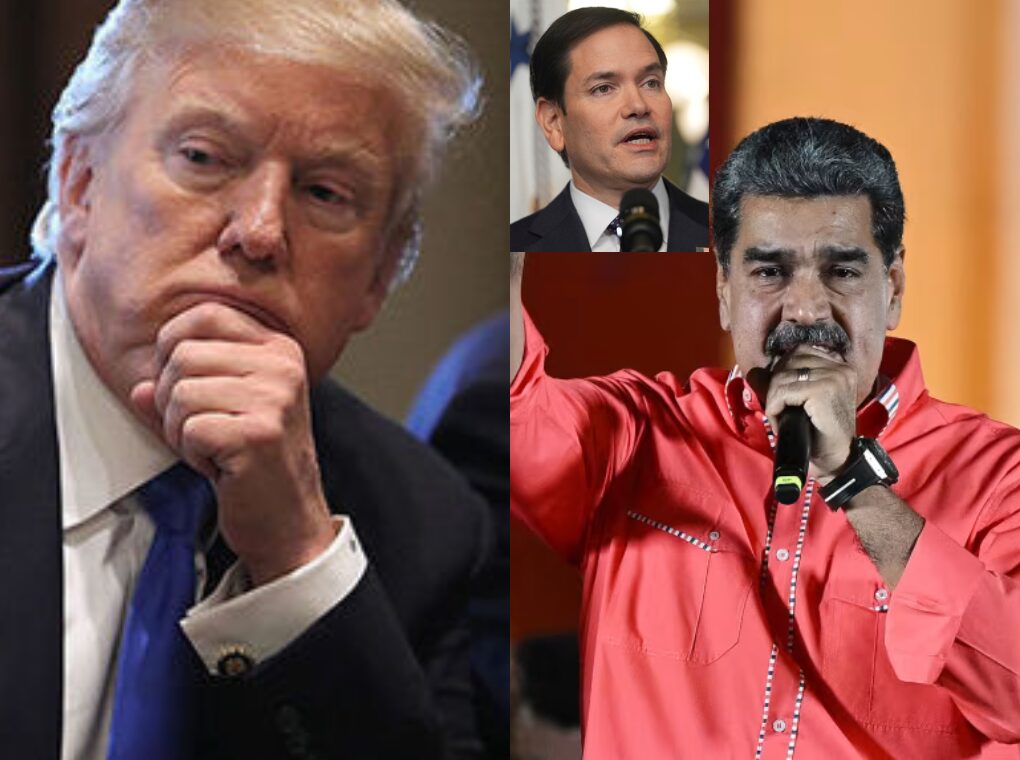Venezuelan President Nicolás Maduro has escalated tensions with Washington, issuing a chilling warning to U.S. President Donald Trump while denouncing the deployment of American warships near his country’s shores.
At a fiery press conference in Caracas, Maduro declared Venezuela in a state of “maximum readiness” to defend itself against what he described as an unprecedented military threat in the Caribbean. “In response to maximum military pressure, we have declared maximum readiness to defend Venezuela,” he announced.
Maduro specifically targeted U.S. Secretary of State Marco Rubio, accusing him of engineering a confrontation aimed at regime change in Caracas. “Be careful… Marco Rubio wants to stain your hands with BLOOD,” Maduro warned Trump, adding that the top diplomat was leading the U.S. president into a “bloodbath with a massacre against the people of Venezuela.”
Warships in the Caribbean
According to Maduro, the United States has deployed eight military vessels, including a guided missile cruiser, armed with 1,200 missiles and supported by a submarine now stationed in the southern Caribbean. One of the ships was spotted crossing the Panama Canal en route to the region.
For Washington, the move is an extension of an anti-narcotics operation, aimed at disrupting drug trafficking routes allegedly tied to Maduro’s government. The U.S. insists it has made no threat of invasion. But for Caracas, the deployment represents nothing less than imperialist aggression.
“Venezuela will NEVER concede in the face of extortions and threats,” Maduro said. “We are a people of WARRIORS.”
His government has already announced increased naval patrols and claims more than eight million Venezuelans have enlisted as reservists ready to defend the homeland in the event of an attack.
Washington Doubles Down
The Trump administration has steadily escalated its campaign against Maduro, whom it does not recognize as Venezuela’s legitimate leader. Both the 2018 and 2024 elections were dismissed by Washington and much of the international community as fraudulent.
In a move underscoring its hardline approach, the U.S. recently doubled its bounty on Maduro’s capture to $50 million, alleging that the Venezuelan president heads a powerful drug cartel. Despite years of sanctions, including an oil embargo, Maduro has managed to hold on to power, bolstered by his control over state institutions and support from allies such as China, Russia, and Iran.
Regional Tensions and the Essequibo Dispute
The U.S. naval deployment has also exposed fault lines in South America. While Venezuela denounces the move as a violation of its sovereignty, neighboring Guyana has welcomed the American presence.
Guyana’s President Irfaan Ali called the deployment “anything to eliminate any threat to our security.” This endorsement comes against the backdrop of a heated border dispute between Caracas and Georgetown over the Essequibo region, a resource-rich territory making up nearly two-thirds of Guyana’s landmass.
The quarrel, dormant for decades, reignited after ExxonMobil discovered massive offshore oil reserves in Essequibo a decade ago. Venezuela insists the territory was wrongfully taken, while Guyana maintains that it has been under its administration for over 100 years. The standoff has increasingly become entangled in broader geopolitical rivalries.
Analysts: Escalation or Posturing?
Despite Maduro’s warnings of an “armed struggle,” most analysts argue that a U.S. invasion remains unlikely. Instead, the naval deployment is viewed as a high-stakes maneuver to intensify pressure on Caracas and demonstrate Washington’s commitment to curbing Maduro’s influence in the hemisphere.
Still, the Venezuelan president’s defiant language underscores the seriousness of the crisis. “If they want a period of armed struggle in defense of the national territory, Venezuela is ready,” he declared.
Known for his fiery, anti-American rhetoric, Maduro insisted that his country “will never give in to blackmail or threats of any kind.” He portrayed the standoff as part of a broader battle for sovereignty and dignity against U.S. imperialism.
The clash between Washington and Caracas has entered a dangerous new phase. With warships stationed in the Caribbean, an oil-rich border dispute inflaming tensions, and both sides doubling down on hostile rhetoric, the possibility of miscalculation looms large.
For Maduro, the crisis offers an opportunity to rally his domestic base by framing Venezuela as a nation under siege. For the United States, it is a test of its ability to pressure a longstanding adversary without sliding into open conflict.
